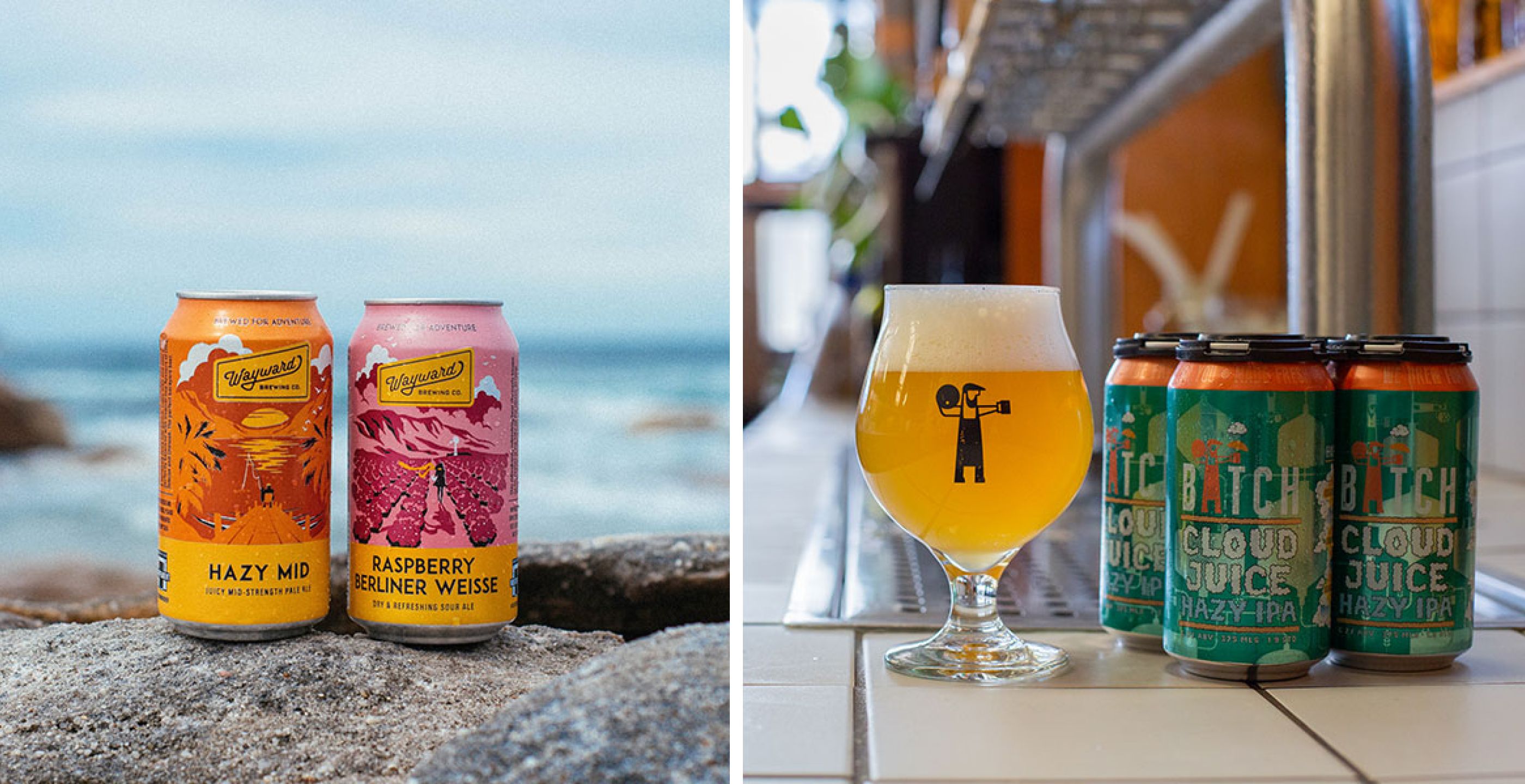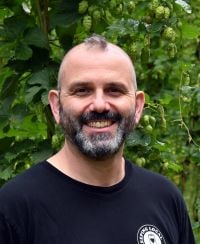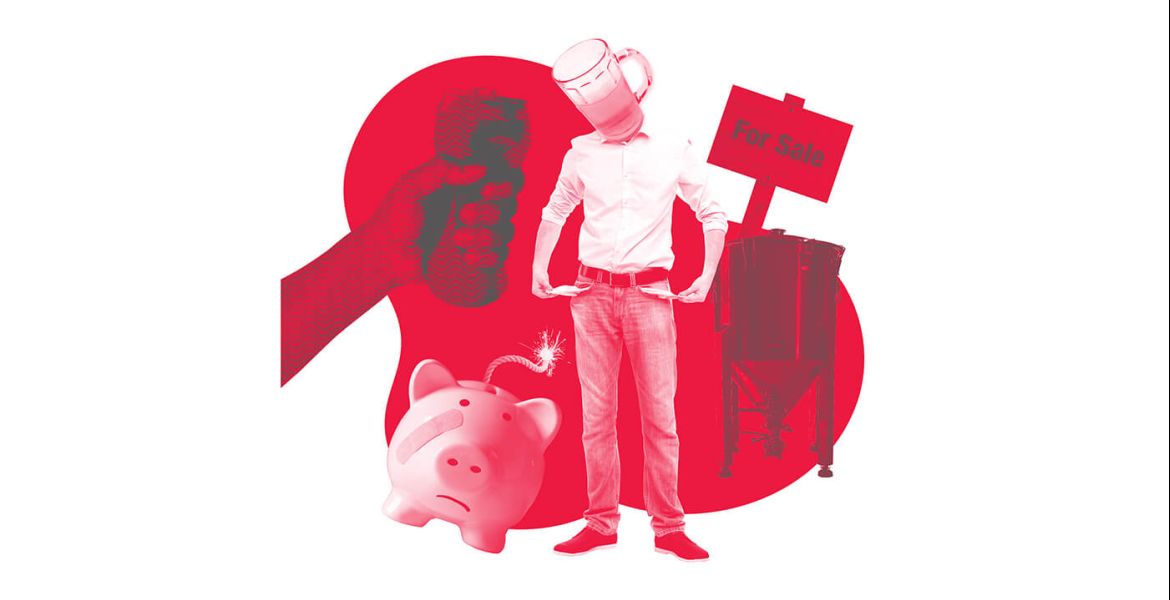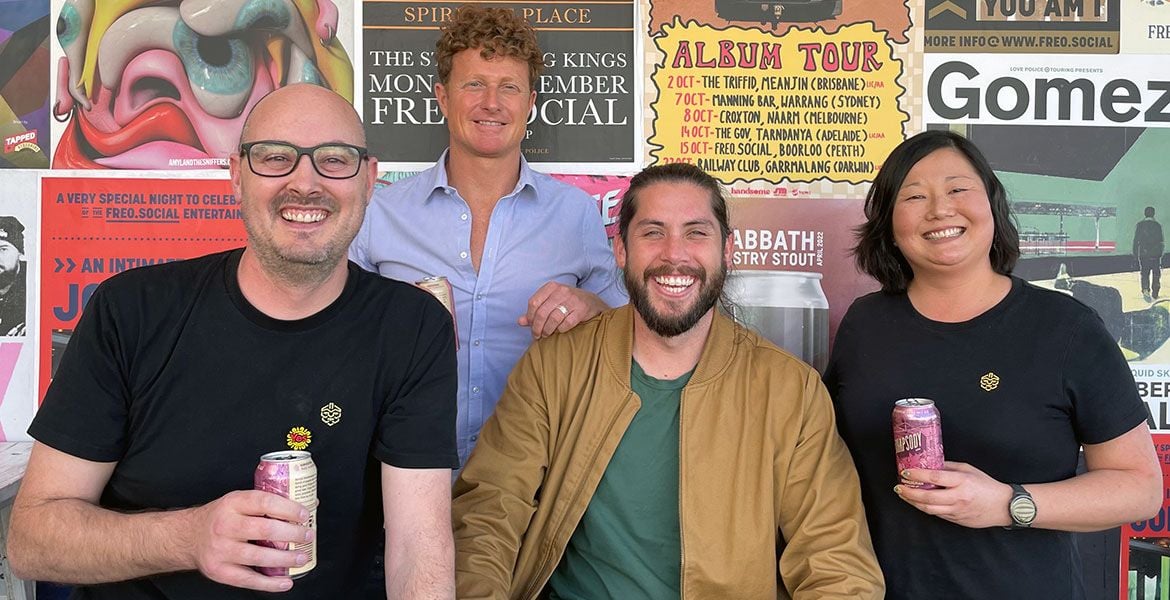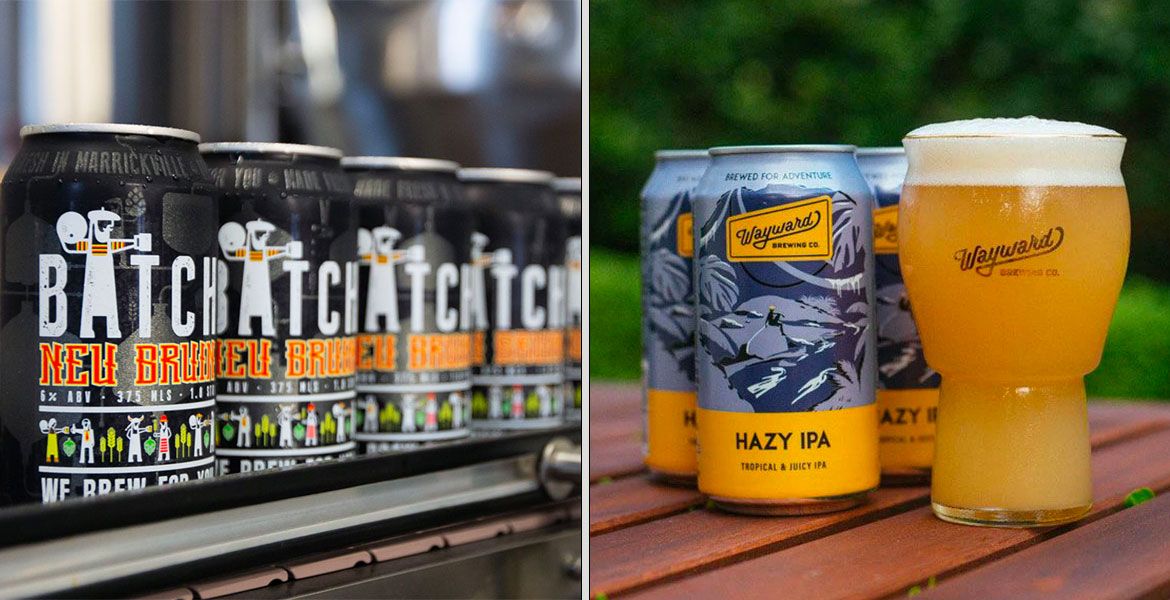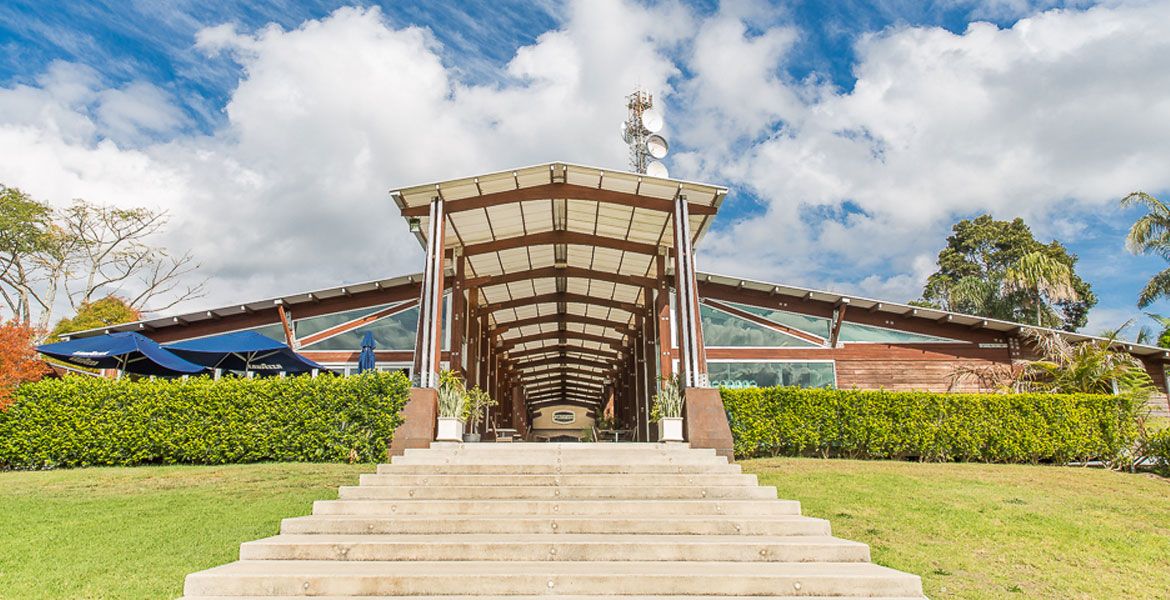Wayward and Batch have today announced the formation of a new collective of independent breweries they hope will give them greater firepower to compete with the multinational beverage companies that dominate the Australian beer market.
The Local Drinks Collective (LDC) will see member breweries share key services, such as distribution, sales and production, with the stated goal to become "one of the top three independent brewing collectives in Australia within three years”. Looking ahead, they will "potentially look to float the company on the ASX when it reaches a critical mass," according to the media release accompanying the announcement.
The two Inner West Sydney breweries are the founding members, and are in discussions with a number of breweries elsewhere in Australia. Wayward founder and former Independent Brewers Association (IBA) chair Pete Phillip, who is also chair of the LDC, told The Crafty Pint they're aiming for around five members, potentially adding one in Queensland, one in Victoria and one in the ACT.
He says inspiration came from the likes of CANarchy in the US – the collective of craft breweries including Oskar Blues, Cigar City and others which sold to Monster Beverage – and cooperatives operated by winemakers in Europe. And in designing the collective, they looked at other models here in Australia, including Mighty Craft and Good Drinks, before settling on their structure.
It's one that sees both breweries going "all in" – everything they sell goes through the new company, with share of ownership and profits calculated based on what each partner brings to the table in terms of venues, wholesale reach and so on. They now share logistics, sales and marketing teams – with all existing staff retained, and can access each others' breweries for production if required.
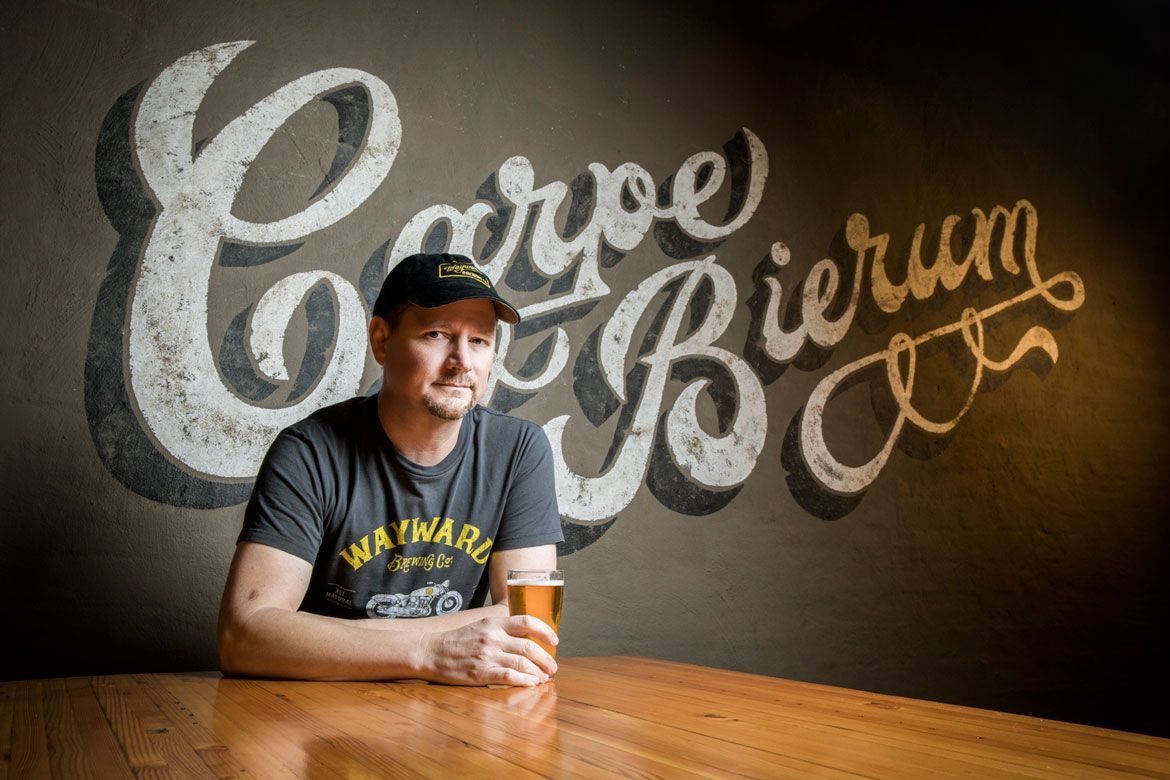
In a practical sense for consumers, they'll now find Batch beers on tap at Wayward's Camperdown brewpub and Wayward products on sale at Batch Brewing Co in Marrickville. The Bucket Boys venue acquired by Batch earlier in the year is being renamed the Local Drinks Collective – the view being that the name works for a bottleshop – with the upstairs bar to become a Wayward-branded bar.
Down the line, if they secure partners in other states or territories, there would be negotiations as to which brands would be sold where, which brands would be best suited for potential new venues in different parts of the company, and an agreement to use each member's facilities to brew beer for the local market if required. Pete says the board would work to avoid different members releasing similar styles of beer at the same time into the same market, or competing for each others' tap or fridge space.
"The collective comes from the realisation we've got to get bigger," Pete says. "There's two models that work. One is brewpubs – you could have a million brewpubs and that's fine. Then there's the ten largest indies who will be successful.
"In the middle, it's very, very tough. It's not that you can't succeed in the middle, but it's very, very tough."
He believes that, combined, Wayward and Batch would sit between 20th and 25th in terms of output in Australia, and says they plan to grow by bringing in other members who would take their collective output towards the upper echelons, improving their economies of scale, cutting duplications within individual businesses, and giving them more firepower.
"We want to be able to take a leaf out of the way the big boys do it," Pete adds. "We need to lead at everything – get our cost of goods down, be a marketing leader, a sales leader, a quality leader – and to do those things you need money.
"You need to get to five to ten million litres [output per annum] before you've got the cost of goods that someone like Good Drinks [the ASX-listed umbrella company that grew from Gage Roads and now owns brands including Atomic, Stomping Ground and Matso's] has. That's a great, well-managed company, with great cost of goods making great beer. They're big enough to start acquiring brands like Stomping Ground and we're not." Hence looking to create another model.
As for similarities with Mighty Craft, the company that launched as Founders First and has invested in or acquired a number of Australian beer and spirits brands, Pete says LDC members would have greater motivation to see the model succeed as they would all be owners, rather than selling their beer to a parent company / investor like Mighty Craft.
"We don't think that Mighty Craft has necessarily worked for a lot of the breweries that have become part of it," he says, "so how do we build this into something where we can retain some of our independence and what made us special in our home state, and then leverage off other partners around the country in exactly the same position?
"We can leverage off their local presence in Victoria or Queensland and they can leverage off our presence in New South Wales."
He also says that, by becoming part of one new entity, member brewers would be eager to see any of their colleagues' brands grow as all would benefit.
"It takes the ego out of it," Pete says. "Once you're all in, the ego goes out of it."
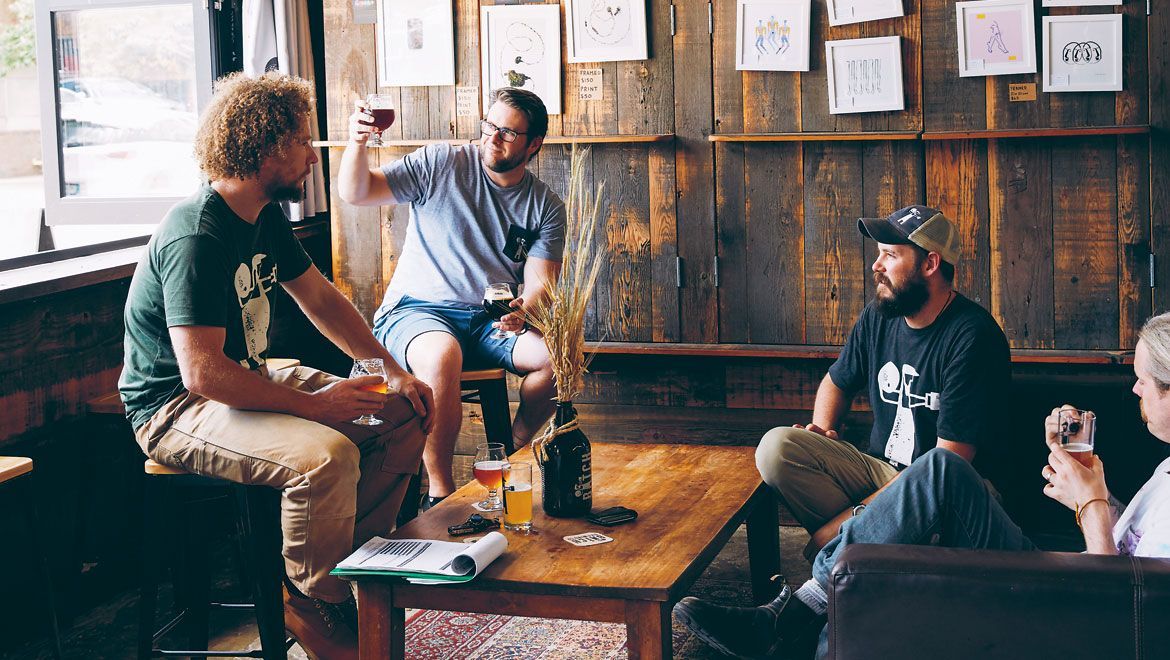
It's a sentiment echoed by Batch co-founder Andrew Fineran, who described the new partnership as "exciting".
"It just makes sense," he told The Crafty Pint. "This is going to maintain that passion that we all came [into the industry with] and revive it as our backs aren't up against the wall anymore.
"We see it as people can start having fun, and when you start having fun then the world's your oyster. Fun brands, fun places to come, and fun new ideas."
Today's announcement continues a roller-coaster ride for the Batch team, with Andrew saying he and co-founder Chris Sidwa had already been looking at ways in which breweries could start working together more as they look to emerge from a tough period.
"Roller-coaster is exactly right," he says. "Crowdfunding, dealing with Covid, buying Bucket Boys and the challenges in trying to get that back on its feet.
"We're not giving ourselves any time to chill out – I don't know why I'm a glutton for punishment – but it's exciting. I like change, I like what we're doing and it feels right for Batch. When we raised money, phase one was adding more venues and wholesale growth, and phase two was to expand again further, and while the wholesale growth didn't come, as far as things stand we're still [expanding], just in a different way – partnering instead of setting up a bigger brewery on our own."
Both Pete and Andrew are quick to emphasise that they'd be satisfied to see the other one enjoy greatest success from the partnership, even if it meant their brand playing second fiddle.
"If Wayward takes off then that's great," Andrew says. "We would still have the existing brewery making Batch and if my legacy exists there only I'm still proud of what we've done. Chris and I have reflected on what we've done and we're proud of it, but we have to be open to change. Let's not cut our nose off to spite our face but instead figure out how to positively contribute to beer or the wider drinks industry in Australia."
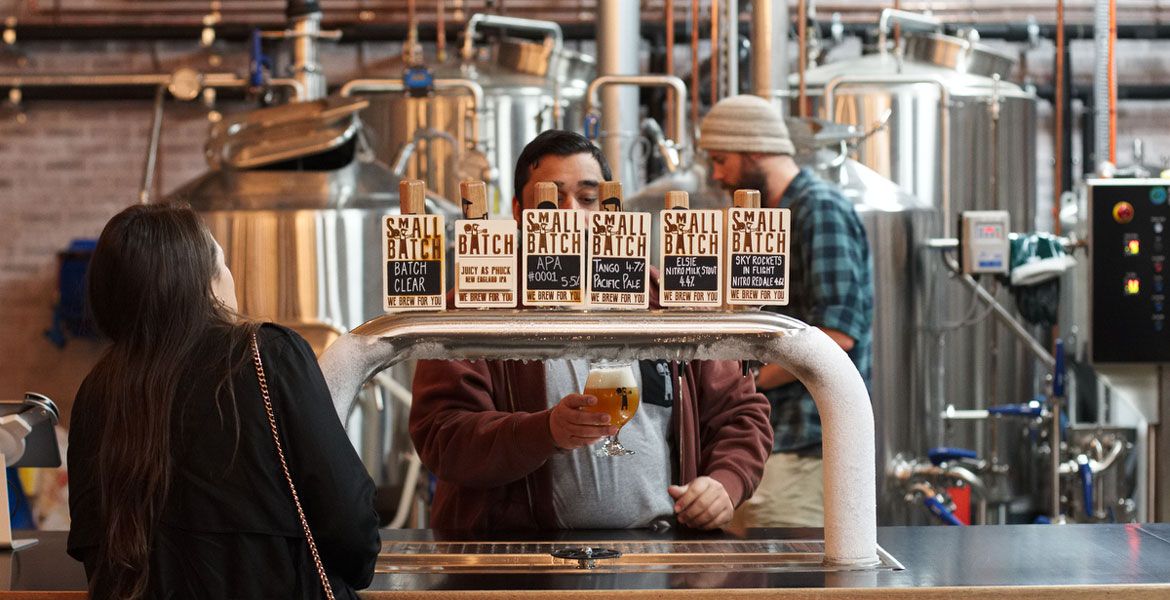
In the media release announcing the new venture, the partners emphasised the challenges independent brewers face "competing against foreign multinationals with unlimited access to capital that has been used to sew up taps" across Australia.
It sees Wayward and Batch creating a distribution, sales and services company designed "to help small and regional brewers compete more effectively, sustainably and profitably", with the aim of becoming "a leading force in Australian independent craft that is infinitely local but nationally accessible."
Pete stressed in the announcement that the move isn't "a sell-out or a rollup", but a move in which "each member brewery in the Local Drinks Collective retains its unique identity, its brands and its founders". Floating on the ASX is seen as a potential outcome, however.
Key ways in which the LDC founders see members working together for mutual advantage outlined in the release include:
- Sharing logistics, such as the delivery of beer to customers;
- Sharing manufacturing capabilities of each brewery: each member can use another's production facilities as and when required to meet changes in demand or to brew more closely to a particular market;
- Better ability to partner with national retailers by giving them one point of contact for multiple brands; and
- Greater ability to raise capital and more liquidity opportunities for shareholders so they don't need to sell to a larger company.
When it comes to partnering with national retailers, in particular EDG (Dan Murphy's and BWS) with their growing range of homebrand craft offerings under the Pinnacle Drinks banner, and Coles Liquor, whose Tinnies range in particular competes with other craft brands, Pete admits it's a double-edged sword.
"They are a valuable business partner and a competitor at the same time," he says. "It's a challenge, and the only way to address that challenge is to produce the best quality beer with the best brand and the best cost of goods to compete head on."
As craft style beers start to take more market share from mainstream brands, he says this is only going to become more important; not every drinker wants to pay a premium for their beer even if they can be tempted away from mainstream brands, so smaller brewers need to find a way to compete in that space.
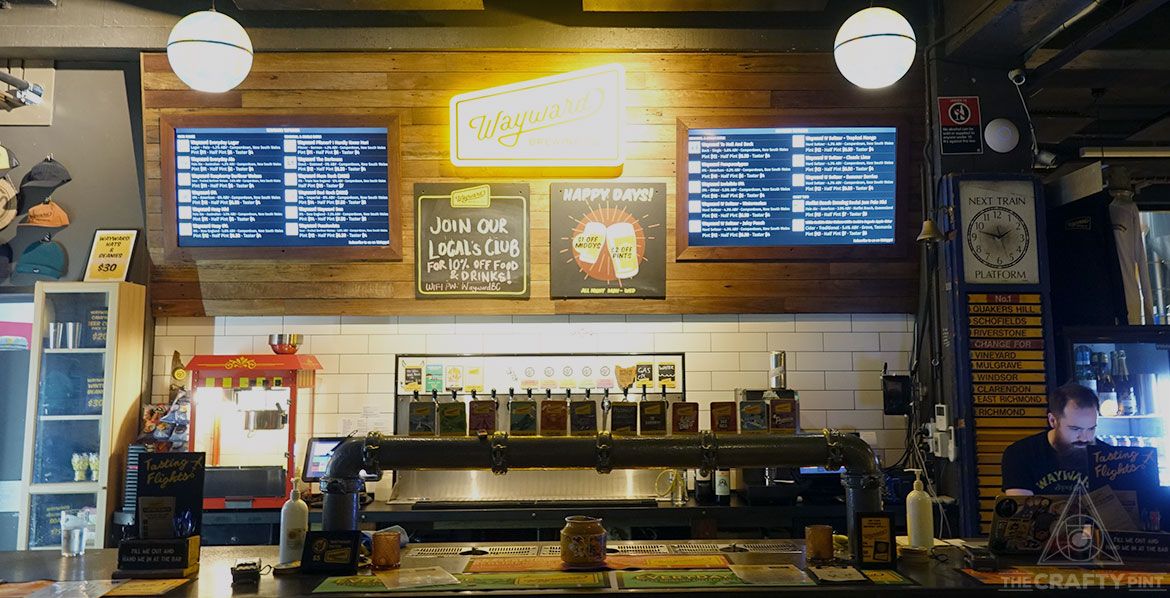
Both Batch and Wayward launched close to a decade ago, with Batch among the first to call the craft beer haven of Marrickville home when they started out 2013. Their approach from day one could be seen as something of a precursor for what lay ahead in the Australian beer scene: focusing on ever-changing, small batches of beers servicing their local community. Wayward, meanwhile, spent three years brewing across Sydney from 2012 until finding a home in Camperdown in the inner west.
In March 2021, Batch embarked on an equity crowdfunding campaign and raised their maximum target of $1.5 million with a month left to go. Then, in March this year, they acquired Bucket Boys’ venues in Darling Square and Marrickville. They also operate Small Batch, a pilot brewery and taproom, in Petersham.
Since setting up home in Camperdown, Wayward have undergone significant expansion, taking over neighbouring buildings and producing a range of seltzers. In August, the brewery launched an employee share scheme and announced plans to list on the stock exchange, according to Brews News.
Although neither of the country’s two largest breweries has bought another beer brand since Lion snapped up Stone & Wood in September last year, the past 12 months have seen plenty of ownership movement and restructuring.
Jetty Road’s co-founders, Blake Bowden and Grant Rodgers, left the Mighty Craft-backed business they created in October last year, with the ASX-listed business going on to up its stake in the brewery to 100 percent. Last month, Mighty Crafty sold its stake in Sparkke and switched the brand's Whitmore brewpub into an Adelaide home for Mismatch, which they acquired outright in June 2021.
In June, Catchment Brewing bought fellow Queensland operation Fortitude Brewing, the same month Adelaide-based Little Bang sold to the Duxton Pubs Group, while Good Drinks added Stomping Ground to their portfolio in August.
For analysis as to what this might mean for the wider beer industry, check out this article.
MEDIA RELEASE: INDIE BREWERS COLLABORATE TO TAKE ON MULTINATIONAL GOLIATHS
Australian independent brewers are passionate about creating quality brews that express their creativity and innovative flair. Many of these entrepreneurs started breweries to express their passion for the craft of brewing but have struggled to cope with the demands of running a growing business while also facing the challenges of competing against foreign multinationals with unlimited access to capital that has been used to sew up taps in too many pubs across Australia.
Today, the Local Drinks Collective (LDC) has launched to address these challenges and represents a new phase in the evolution of Australian independent brewing.
The collective leverages the strengths of its members to create great quality beverages for all Australians while retaining the innovation and local focus that each brand is known for.
Turning the normal consolidation model on its head, the Local Drinks Collective will be cooperative structure, owned by the member breweries. The collective sees the creation of a distribution, sales and services company to help small and regional brewers compete more effectively, sustainably and profitably. Together, they intend to become a leading force in Australian independent craft that is infinitely local but nationally accessible.
Peter Philip, founder of Wayward Brewing Co and former chair of the Independent Brewers Association is the initial Chairman of the Local Drinks Collective.
“This is not a sell-out or a rollup”, said Peter, adding “each member brewery in the Local Drinks Collective retains its unique identity, its brands and its founders with the collective providing services to each of the breweries to help everyone succeed in an ever-increasingly competitive market that is dominated by massive multinational beer companies.”
The Australian beer market is dominated by the Japanese, with Kirin Holdings owning local brands such as XXXX, Tooheys and James Squire and Asahi Holdings owning Carlton, VB, Reschs and Great Northern. Together they have a market capitalisation of nearly $30 bn AUD.
The Local Drinks Collective is a cooperative structure that seeks to level the playing field with these multinational goliaths, giving independent craft brewers some of the scale benefits enjoyed by big brewers while maintaining the independence and innovation that is driving the inclusive and exciting craft beer culture enjoyed by so many.
The first two participants in the Local Drinks Collective are Wayward Brewing Co and Batch Brewing Co of Sydney, being two of the original Inner-West Sydney craft breweries with discussions currently taking place with a number of other regional breweries which will give the collective national coverage.
“Wayward and Batch have a long history of collaboration, so it was an easy discussion to have between a couple of mates over a beer”, said Pete Philip.
Andrew Fineran, the co-founder of Batch Brewing Co agreed, “Pete and I caught up and when he told me the idea, I immediately saw how it could be a very successful model for retaining independence while growing nationally.”
Like many of Pete’s brewing inspirations, the idea of the Local Drinks Collective came from his travels and looking at how artisan producers in other markets have worked together to become more competitive while retaining the unique character of each producer.
He saw firsthand how winemakers of Europe have goeen together to form cooperatives for the mutual benefit of all the participants. The co-op structure provides many of the shared services that the individual winemakers need to produce their product - ranging from production to marketing to distribution. The structure allows for individual brands to grow without needing to duplicate expensive infrastructure, allowing the winemaker to focus on their craft while gaining the economies of scale necessary to compete in a market dominated by multinationals – exactly the same issues faced by Australian independent brewers.
The Local Drinks Collective borrows from this tradition to provide common functions that are necessary for Australian independent breweries to grow their businesses in an increasingly competitive market while maintaining the innovation that made them successful in the first place.
One simple example of this is logistics. Breweries that handle their own logistics oBen scratch their heads at the sense of multiple delivery vans making the same rounds each day. Outsourcing options exist, but they dramatically impact the profitability of the brewery and result in a loss of control.
Another common issue for many fast-growing breweries is how to manage production growth. Brewery owners agonise over the decision of how and when to expand production and many are loath to outsource for fear of losing control of their IP and unique processes.
The co-operative ownership structure of the collective means that all the manufacturing capabilities of the alliance are available to all members. This means that manufacturing can take place closer to the customer, reducing transport costs and being more sustainable.
Other models have emerged in Australia in the last few years that seek to provide some economies of scale, but they have largely faltered because the members of these groups have no incentives to work together.
The Local Drinks Collective addresses the flaw in alternative models through an ownership model that means that every participant shares in the growth of the collective. Thus, the members have an incentive to cooperate and grow every brand in the collective.
The Local Drinks Collective provides distribution efficiencies for customers who can deal with one entity rather than many individual breweries. It also means the collective can more effectively partner with national retailers to make the products of the partner members more available to consumers nationally. With these diversified sources of revenue, the collective will over time become a more attractive entity for raising capital. Long-term the collective will provide liquidity opportunities for shareholders without the need to “sell out” to big beer – and it is this element that ensures that the collective is a sustainable model for independent beer to truly stay independent.
“We want to provide a model that lets independent craft brewers stay independent”, said Pete, adding “this will allow us to more effectively compete with massive foreign multinationals so that we can continue to get great craft beer into the hands of Australian beer drinkers everywhere.”
So, while the Local Drinks Collective borrows from older traditions, it is truly a new paradigm in the Australian beer market.
“This has the potential to be one of the top 3 independent brewing collectives in Australia within 3 years”, said Pete, adding “I’m always open to having a chat with like-minded independent breweries who have something to offer the collective”.





